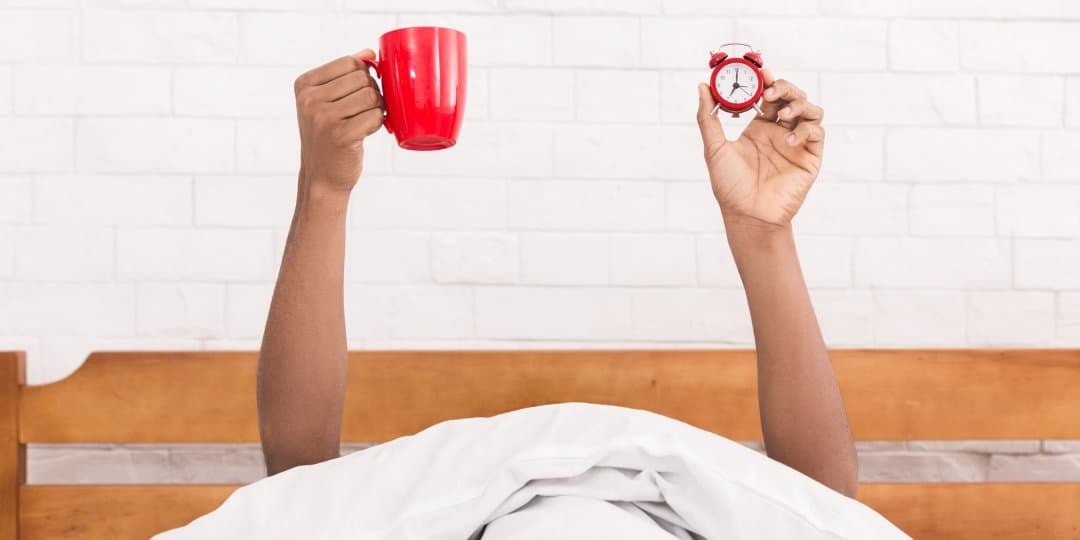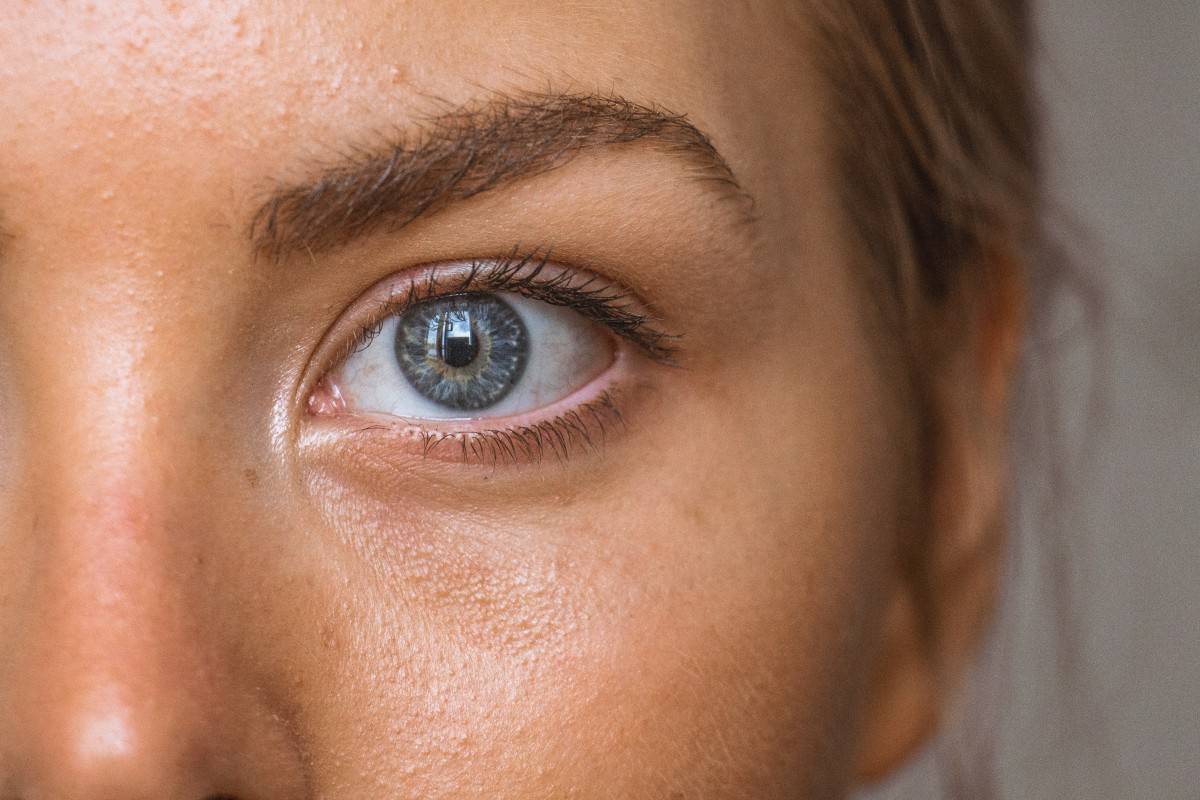Are you unable to sleep on time at night, yet you have an early morning meeting or busy schedule the next day?
You want to sleep, but something is keeping you up the whole night. That’s happening because of the coffee you enjoyed cups after cups in the entire day.
Coffee can keep you up at night because the caffeine in coffee is a central nervous stimulant that acts on a chemical in your brain called adenosine. Adenosines are light molecules that bind with adenosine receptors in your brain to induce sleep. However, when you drink coffee, caffeine blocks the binding of adenosine receptors, which reduce the drowsiness effect and alert the brain.
Caffeine boosts cognitive function and energy, but it does not entirely ward off sleep loss.
Caffeine not only disrupts sleep but also decreases the deep sleep time that you enjoy. It keeps your brain up at night many times by increasing arousal frequency.
Studies also claim that coffee can disrupt your circadian clock. It means that this psychoactive drug delays the inner 24-hour metabolic rhythm responsible for keeping your body running with the world.
No need to worry. No one will ask you to quit coffee to develop better sleep hygiene. If coffee keeps you up at night, you can opt for less coffee than the amount you usually take.
This simple change will help brain molecules adenosine to hit receptors and make you sleep on time.
Keep reading to find out more.
How Long Does a Cup of Coffee Keep You Awake?
In general, the effects of a cup of coffee last up to five to six hours. There is no particular parameter to tell how long a cup of coffee keeps you awake. It depends upon different factors such as genetics, tolerance, and individual health.
When you drink a cup of coffee, almost half of the caffeine effect lasts in your body for around 5 hours, and another half can stay even longer.
That means you should enjoy your last cup of the day around 10 hours before sleep. This way, you give your body enough time so that compete caffeine effect will fade away completely, and you can sleep at any time.
But then again, it depends upon a person’s tolerance and dependency on caffeine. Some people, however, become tolerant of caffeine because of excessive daily consumption and need an extra amount to stay awake. And on the flip side, they might sleep early despite taking coffee right before bed.
Suppose you ask someone dependent on large caffeine intake to take their coffee 10 hours before bed. Then an opposite reaction will occur, and they might be unable to sleep at night because of caffeine withdrawal, sweats, and pounding headaches.
So if you drink around 20mg of caffeine, about 10mg is left in your body after 5 hours. Keep this calculation in your mind, and it will help you decide how long your last cup of the day will affect your brain, so you are ready to hit the bed on time by taking coffee on time accordingly.
Is It Okay to Drink Coffee Before Bed?

Drinking coffee before bed is not a good idea if you want to enjoy a good night’s sleep. Even taking coffee, 3 or 6 hours before bed, can disrupt sleep.
A study was conducted to demonstrate the effect of taking different caffeine doses before bedtime, and the result shows significant sleep disturbance.
The administrated caffeine in healthy adults and showed varied results depending on different variability. The research recommended variable amounts for adults differ from 4 hours to 11 hours before bedtime.
However, there is no clear evidence regarding the effect of caffeine consumption at taking in the morning and early parts of the day.
Health professionals recommend avoiding coffee before bedtime for better deep and sound sleep. Caffeine can impact sleep time, efficiency, and satisfaction levels.
It is recommended for kids and older people to avoid coffee as much as possible because it reduces slow-wave sleep, which is the stage of deep, restful sleep that is important for everyone to function well another day.
How Late Is Too Late For Coffee?
A cup of coffee in the evening or at night right before bed is too late unless you want to put an all-nighter for a study or a party. Health experts suggest that as early as 2 pm, you should stop drinking coffee.
The recommended time is mid-to-late morning.
Why should you worry about the right time for coffee?
This is because caffeine takes a long time to break down to completely leave your system than what you might have assumed to. It partially depends on the metabolism of individuals that the zippy side effects wear off gradually as time passes.
According to the U.S. National Library of Medicine, caffeine kick starts its effects within the first hour of consumption.
Some even feel the jolt of boosted energy right under 15 to 30 minutes.
The result of studies on the impact of caffeine on sleep shows that the last cup of caffeine consumption should be restricted after 5 pm. This calculation is regarded to moderate-large doses of caffeine present in popular and largely consumed drinks and coffees.
Can You Get Insomnia From Too Much Caffeine?

Overconsumption of coffee can lead to sleep problems like insomnia.
Over-consuming caffeine not only cause insomnia but other health issues such as:
- Upset stomach
- Nausea
- Anxiousness
- Fast heart rate
Taking too much caffeine is a trend in teens and adults nowadays. But here is where parents and friends should need to be a little alert.
Students and adults purchase and consume products labeled as dietary supplements based on concentrated caffeine in liquid or powder forms.
The highly concentrated caffeine found in these dietary supplements is among the reason people are getting prone to insomnia and other health issues. FDA took action against these getting sold in bulk packaging with up to thousands of servings per container.
The package often claimed to the consumer to measure out a safe serving, leading to toxic results.
FDA warns against concentrated caffeine products as they present a high public health threat and have claimed to be the reason for at least two deaths in the United States in the last few years.
It’s scary, but it’s true. Students taking cups of highly concentrated coffee for either studying by putting all-nighter or fall into the scam of faster weight loss promises of these drugs face health issues.
It’s not just insomnia, but it can be much more dangerous if you don’t control the symptoms and stop the caffeine abuse.
How Else Can I Improve My Sleep?
By limiting caffeine intake and making some lifestyle changes, you can improve your sleep pattern. Monitor your daily intake of coffee in a way you monitor your food when trying to lose weight.
A healthy diet and exercise routine can contribute to healthy and happy sleep. Good sleep hygiene is based on the healthy habits and routines that optimize the quality of your sleep:
- Comfy, cool, and dark sleep environment
- Moderate alcohol and caffeine consumption
- Regular exercise routine
- No smoking
- A regular bedtime routine, putting the phone away and enjoying the dim light by reading a good book
Sometimes you also experience that even taking the last cup of coffee in the early part of the day is still bothering you at night. Then, you need to know that it’s not only coffee that keeping you up and alert at night but the caffeine in the coffee.
That’s means if you are consuming caffeinated products before sleep, it might also be the reason you can’t be able to sleep. Avoid taking snacks before bed as well.
The table below shows the amount of caffeine in different snacks
| Snacks / Drinks | Caffeine Content |
| Cocoa Beans Chocolate 100 % | 240mg |
| Chewing Gum | 10-50mg |
| Red Bull 250ml | 80 mg |
| Green Tea 240ml | 30-40mg |
Takeaway
In summary, coffee can keep you up at night because the stimulant caffeine messes with the sleep-inducing adenosine receptors, keeping us awake for as long as the caffeine stays in our system.
This will then result in poor sleep which can spiral into several health problems like insomnia.
Coffee doesn’t only wake you up all night it has many other effects as well. Watch this video to know more about coffee’s effects on sleep.
You might turn to caffeine to boost your energy and wake you up in the morning, but there’s a downside. The caffeine you take in the morning affects your sleep cycle and keeps you up at night when you are ready to sleep.
Sometimes headaches, insomnia, and anxiety can be the symptoms of caffeine abuse. Overuse of caffeine can create trouble in our sleep routine, and cause your brain to keep you awake during the night.
That said, with moderate intakes of caffeine, coffee can be more of a friend than a foe as the drink does have some health benefits. You can read it here if you’re interested to find out.

